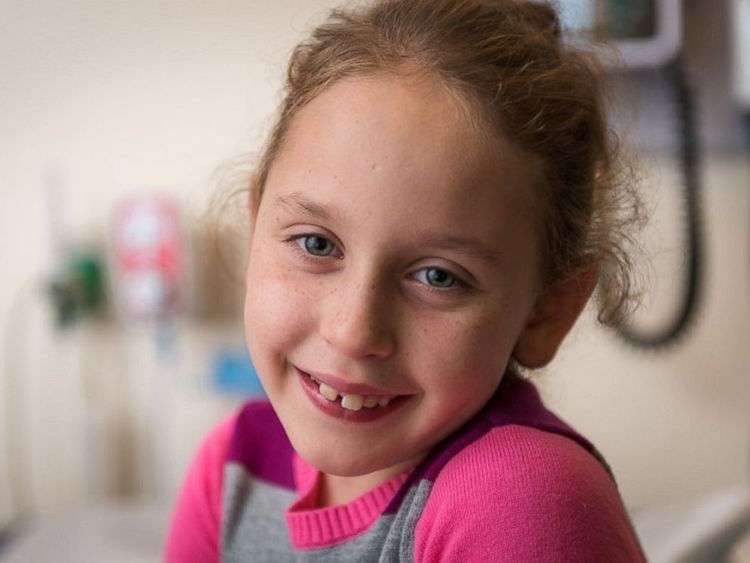This Wristband Will Tell You When to Stop Drinking
This wearable alcohol monitor gives you a second-by-second read out of how much you're drinking and tells you when it's time to stop.

When this little girl was diagnosed with a cancer so rare that there was no specific treatment for it, doctors created a "precision medicine" designed just for her condition.
Allison Schablein was only four-years-old when doctors found multiple tumors in her brain and spine. After four months of treatment, her cancer — a type called anaplastic astrocytoma — became resistant to chemotherapy and started spreading.
Allison Schablein was only four-years-old when doctors found multiple tumors in her brain and spine. After four months of treatment, her cancer — a type called anaplastic astrocytoma — became resistant to chemotherapy and started spreading.
This type of treatment is called "precision medicine" because it uses the patient's genetic information to help target a precise molecule in cancer cells. Chemo takes a much broader approach — trying to kill of lot of cancer cells quickly.
The more targeted therapy of precision medicine can have stunning results.
Allison took two pills each day for two months and when she went back for a brain scan, doctors there couldn't find any trace of the cancer.
CHECK OUT: Colorado Doctor Discovered Natural Way To Treat Common Vertigo
"I stood up and screamed," her father, Dan Schablein told ABC News. "It was just shocking and the most incredible feeling."
Though technically not "cured," the New Hampshire girl has led a normal life for years, and continues to take the drug to prevent a return of her cancer.
The Dana-Farber Center hopes to help other children with the same kind of rare cancer as Allison who feel they are out of options.
SHARE This Dose Of Good News… (Photo: Boston Children's Hospital)
Be the first to comment